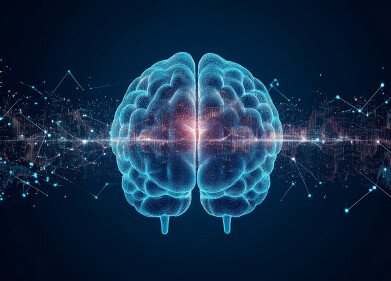Air clean up
Digital decarbonisation: What is it and why does it matter?
Nov 03 2022
Organisations need to urgently tackle digital decarbonisation if the UK is to stand any chance of hitting its 2050 net-zero targets, warn Loughborough University researchers.
The data industry is predicted to account for more carbon emissions than the automotive, aviation and energy sectors combined.
But in a new paper by Loughborough’s Professors Tom Jackson and Ian Hodgkinson, the researchers highlight how recent Government policy and technological innovations focus on tackling traditional carbon emissions, without addressing digital decarbonisation.
One of the big challenges with digital decarbonisation is the amount of dark data organisations create and store. Dark data refers to digital knowledge assets that are used once and then forgotten about, creating a significant and often hidden drain on energy.
More than 60% of data stored by an organisation can be dark data, which is one key reason why the digital carbon footprint of organisations is growing.
“When people think of carbon emissions, they often think of industries like the construction industry,” explains Professor Hodgkinson. “But sustainability strategies must start factoring in digital decarbonisation by looking at where they can reduce waste – dark data is a start.”
Illustrating the extent of the issue, Professor Jackson explains: “A typical data driven business with 100 employees might generate 4590GB data a day, which equates to 10.67 tons of CO2. That’s a similar carbon footprint to flying from London Heathrow to New York 10 times in one day!
“Until organisations and the Government recognise and take measures to tackle digital decarbonisation, it will be impossible for the UK economy to meet the 2050 net zero target.”
In their paper, Keeping a lower profile: how firms can reduce their digital carbon footprints, published by the Journal of Business Strategy , Professors Jackson and Hodgkinson ask organisations to consider the ‘Six Ws’ when managing their knowledge assets:
• Where is digital data being stored?
• Why is new data and information needed?
• Which information governance structures enable new knowledge to be codified?
• Who is responsible for sharing new data and information with others?
• What are the opportunities for data and knowledge reuse?
• When is digital data evaluated and digital waste disposed of?
The researchers, along with coinvestigators Dr Ed Barbour and Professor Lisa Jackson, have now also been awarded funding by the UKRI National Interdisciplinary Circular Economy Research Hub to conduct a feasibility study on the creation of a ‘metal decarbonisation dashboard’. This would enable organisations to evaluate their metal digital carbon footprint over the lifecycle of any metal components they use and deliver system level change to their data collection.
Events
Apr 08 2025 Targi Kielce, Poland
Apr 08 2025 Bahrain
Apr 10 2025 Beijing, China
Apr 10 2025 Beijing, China
Apr 15 2025 Moscow, Russia














